-
 Bitcoin
Bitcoin $112400
-1.07% -
 Ethereum
Ethereum $3409
-3.27% -
 XRP
XRP $2.784
-6.60% -
 Tether USDt
Tether USDt $0.9997
-0.03% -
 BNB
BNB $739.3
-2.09% -
 Solana
Solana $158.0
-2.90% -
 USDC
USDC $0.9998
-0.02% -
 TRON
TRON $0.3213
-0.94% -
 Dogecoin
Dogecoin $0.1929
-5.01% -
 Cardano
Cardano $0.6974
-2.82% -
 Hyperliquid
Hyperliquid $36.69
-2.31% -
 Sui
Sui $3.327
-4.80% -
 Stellar
Stellar $0.3672
-5.18% -
 Chainlink
Chainlink $15.65
-3.07% -
 Bitcoin Cash
Bitcoin Cash $525.0
-1.68% -
 Hedera
Hedera $0.2291
-6.00% -
 Avalanche
Avalanche $20.91
-2.96% -
 Ethena USDe
Ethena USDe $1.000
0.00% -
 Toncoin
Toncoin $3.520
-1.12% -
 UNUS SED LEO
UNUS SED LEO $8.968
0.14% -
 Litecoin
Litecoin $105.7
0.26% -
 Shiba Inu
Shiba Inu $0.00001181
-1.79% -
 Polkadot
Polkadot $3.492
-2.08% -
 Uniswap
Uniswap $8.800
-3.10% -
 Dai
Dai $0.9999
-0.01% -
 Monero
Monero $289.9
-3.17% -
 Bitget Token
Bitget Token $4.243
-1.27% -
 Pepe
Pepe $0.00001006
-3.67% -
 Cronos
Cronos $0.1248
-5.68% -
 Aave
Aave $249.7
-2.50%
What is Bitcoin L2?
Bitcoin Layer 2 (L2) solutions aim to enhance the scalability, transaction speed, and cost-effectiveness of the Bitcoin blockchain while maintaining its security and decentralization.
Sep 27, 2024 at 05:06 pm
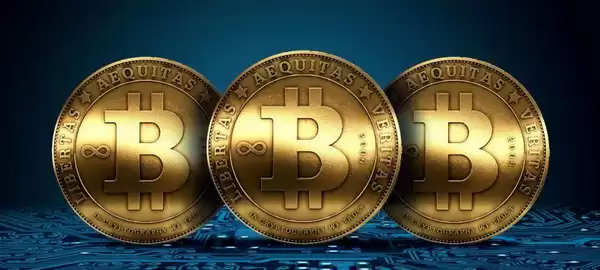
What is Bitcoin L2?
Bitcoin L2 (Layer 2) refers to solutions built on top of the Bitcoin blockchain that aim to enhance its scalability, speed, and cost-effectiveness without compromising its security and decentralization.
Need for L2 Solutions on Bitcoin
Bitcoin's popularity and widespread adoption have led to increased transaction volume and network congestion. This has resulted in:
- Slow transaction confirmation times: Transactions can take hours or even days to be confirmed on the blockchain.
- High transaction fees: Users have to pay higher fees to incentivize miners to include their transactions in blocks.
Overview of Bitcoin L2 Solutions
Bitcoin L2 solutions address these challenges by:
- Increasing transaction capacity: They create additional layers or channels outside the main Bitcoin blockchain, where transactions can be processed in bulk.
- Lowering transaction fees: By bundling transactions, L2 solutions reduce the overall cost of processing each individual transaction.
- Maintaining Bitcoin's security: L2 solutions inherit the security of the Bitcoin blockchain, ensuring that transactions are immutable and irreversible.
Types of Bitcoin L2 Solutions
There are several types of Bitcoin L2 solutions:
Lightning Network:
- Off-chain payment channel network that allows users to transact with each other seamlessly and cost-effectively.
Rootstock Sidechain:
- Sidechain linked to the Bitcoin blockchain, offering faster transaction processing and programmable smart contract functionality.
Liquid Network:
- Interconnected sidechains for faster cross-asset and high-value settlements.
Stacks:
- Blockchain built on top of Bitcoin, providing smart contract capabilities and decentralized applications (dApps).
Benefits of Bitcoin L2 Solutions
- Improved transaction speed: L2 solutions process transactions faster, significantly reducing confirmation times.
- Reduced transaction fees: Users can send and receive Bitcoin at a lower cost.
- Scalability: L2 solutions increase Bitcoin's transaction capacity and address the scalability limitations of the main chain.
- Privacy improvements: Some L2 solutions offer enhanced privacy features, allowing users to make anonymous or confidential transactions.
Challenges of Bitcoin L2 Solutions
- Complexity: Implementing and using L2 solutions can be technically challenging for some users.
- Security: While L2 solutions inherit the security of Bitcoin, they may introduce additional vulnerabilities or security risks.
- Interoperability: Different L2 solutions might not be fully compatible with each other, hindering cross-chain transactions.
Conclusion
Bitcoin L2 solutions play a vital role in enhancing the usability and scalability of the Bitcoin blockchain. By addressing the challenges of slow transaction confirmation times, high fees, and limited capacity, L2 solutions enable Bitcoin to remain relevant and competitive in the rapidly evolving digital economy.
Disclaimer:info@kdj.com
The information provided is not trading advice. kdj.com does not assume any responsibility for any investments made based on the information provided in this article. Cryptocurrencies are highly volatile and it is highly recommended that you invest with caution after thorough research!
If you believe that the content used on this website infringes your copyright, please contact us immediately (info@kdj.com) and we will delete it promptly.
- BlockDAG, SEI, Ethena: Top Crypto Performers Under the Microscope
- 2025-08-03 10:50:16
- Bitcoin Blasts Past $119K: How Institutional Adoption and Macro Shifts Fuel the Fire
- 2025-08-03 10:55:16
- Crypto, Grok, and August: Decoding the Latest Trends and Insights
- 2025-08-03 11:10:16
- Crypto, Phishing, and Your Wallet: A New Yorker's Guide to Staying Safe
- 2025-08-03 10:30:16
- Troller Cat Meme Coin Presale Soars: A New King in the Crypto Jungle?
- 2025-08-03 10:30:16
- Grayscale, Altcoin Trust, and Mid-Cap Mania: What's the Deal?
- 2025-08-03 08:50:16
Related knowledge
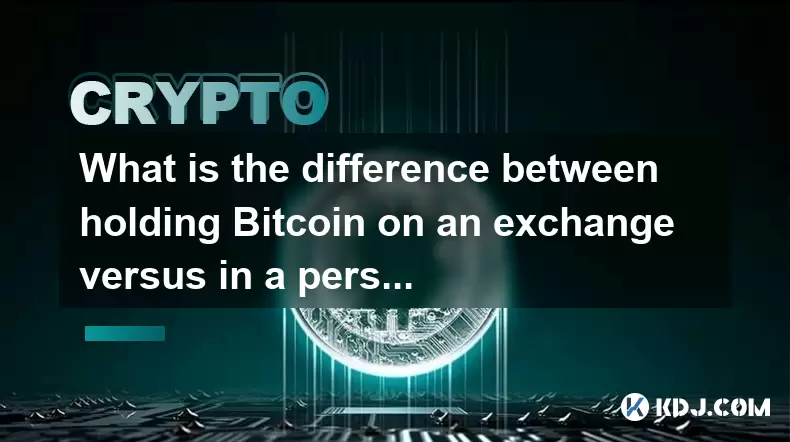
What is the difference between holding Bitcoin on an exchange versus in a personal wallet?
Aug 02,2025 at 03:15pm
Understanding Custodial vs Non-Custodial ControlWhen holding Bitcoin on an exchange, users are essentially entrusting their assets to a third party. E...
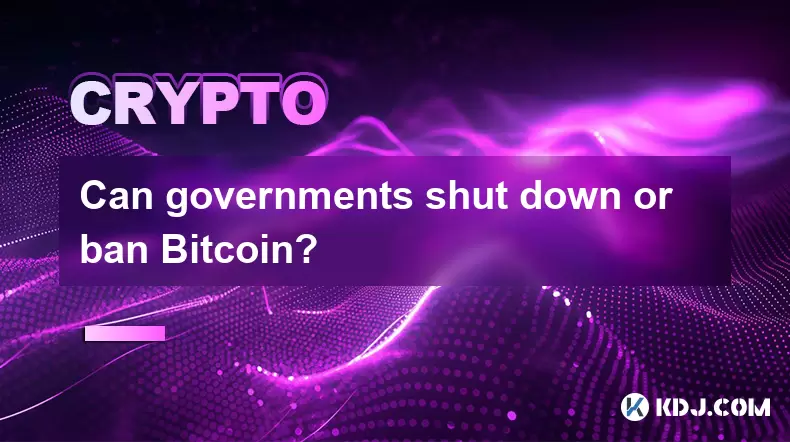
Can governments shut down or ban Bitcoin?
Aug 02,2025 at 09:44am
Understanding Bitcoin’s Decentralized StructureBitcoin operates on a decentralized peer-to-peer network, meaning it is not controlled by any single en...
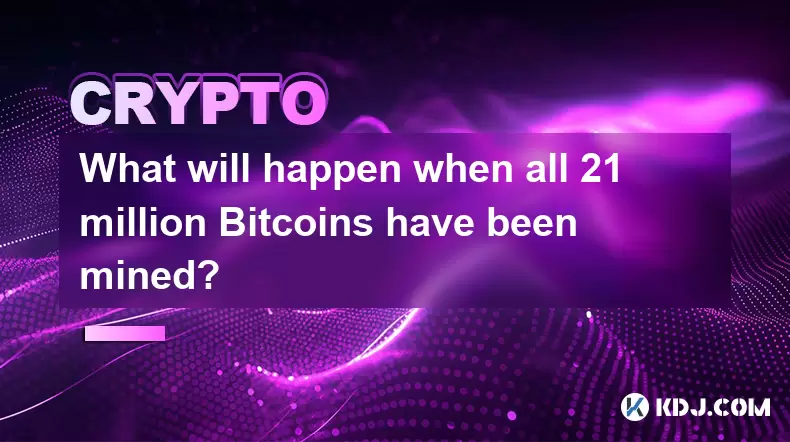
What will happen when all 21 million Bitcoins have been mined?
Aug 03,2025 at 09:50am
Understanding the 21 Million Bitcoin CapThe 21 million Bitcoin cap is a foundational rule embedded in Bitcoin’s source code, designed by Satoshi Nakam...
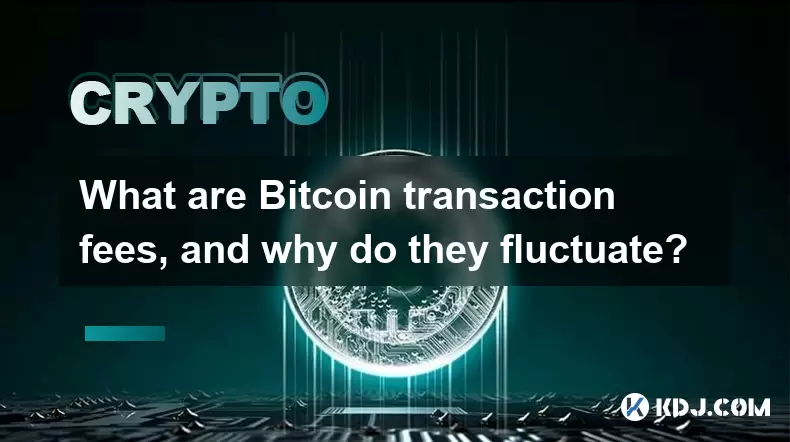
What are Bitcoin transaction fees, and why do they fluctuate?
Aug 03,2025 at 01:51am
Understanding Bitcoin Transaction FeesBitcoin transaction fees are small amounts of Bitcoin paid by users to miners for processing and confirming tran...
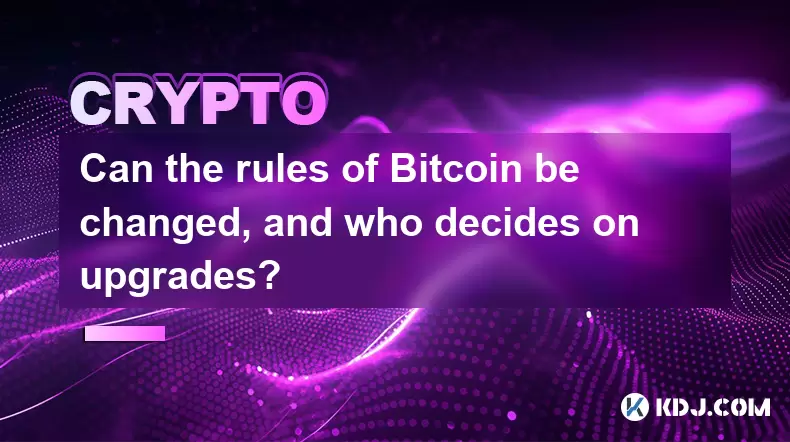
Can the rules of Bitcoin be changed, and who decides on upgrades?
Aug 02,2025 at 06:36am
Understanding Bitcoin's Governance ModelBitcoin operates without a central authority, which means no single entity has the power to unilaterally chang...
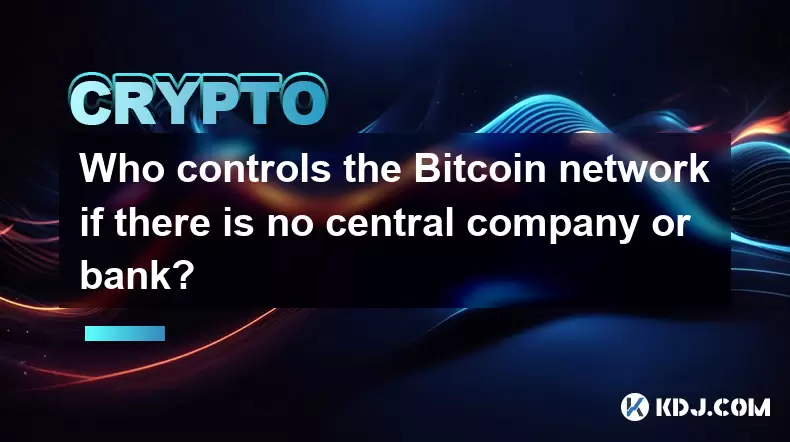
Who controls the Bitcoin network if there is no central company or bank?
Aug 02,2025 at 06:01pm
Understanding Decentralized Control in BitcoinThe Bitcoin network operates without a central authority, which raises the question of who controls it. ...

What is the difference between holding Bitcoin on an exchange versus in a personal wallet?
Aug 02,2025 at 03:15pm
Understanding Custodial vs Non-Custodial ControlWhen holding Bitcoin on an exchange, users are essentially entrusting their assets to a third party. E...

Can governments shut down or ban Bitcoin?
Aug 02,2025 at 09:44am
Understanding Bitcoin’s Decentralized StructureBitcoin operates on a decentralized peer-to-peer network, meaning it is not controlled by any single en...

What will happen when all 21 million Bitcoins have been mined?
Aug 03,2025 at 09:50am
Understanding the 21 Million Bitcoin CapThe 21 million Bitcoin cap is a foundational rule embedded in Bitcoin’s source code, designed by Satoshi Nakam...

What are Bitcoin transaction fees, and why do they fluctuate?
Aug 03,2025 at 01:51am
Understanding Bitcoin Transaction FeesBitcoin transaction fees are small amounts of Bitcoin paid by users to miners for processing and confirming tran...

Can the rules of Bitcoin be changed, and who decides on upgrades?
Aug 02,2025 at 06:36am
Understanding Bitcoin's Governance ModelBitcoin operates without a central authority, which means no single entity has the power to unilaterally chang...

Who controls the Bitcoin network if there is no central company or bank?
Aug 02,2025 at 06:01pm
Understanding Decentralized Control in BitcoinThe Bitcoin network operates without a central authority, which raises the question of who controls it. ...
See all articles

























































































